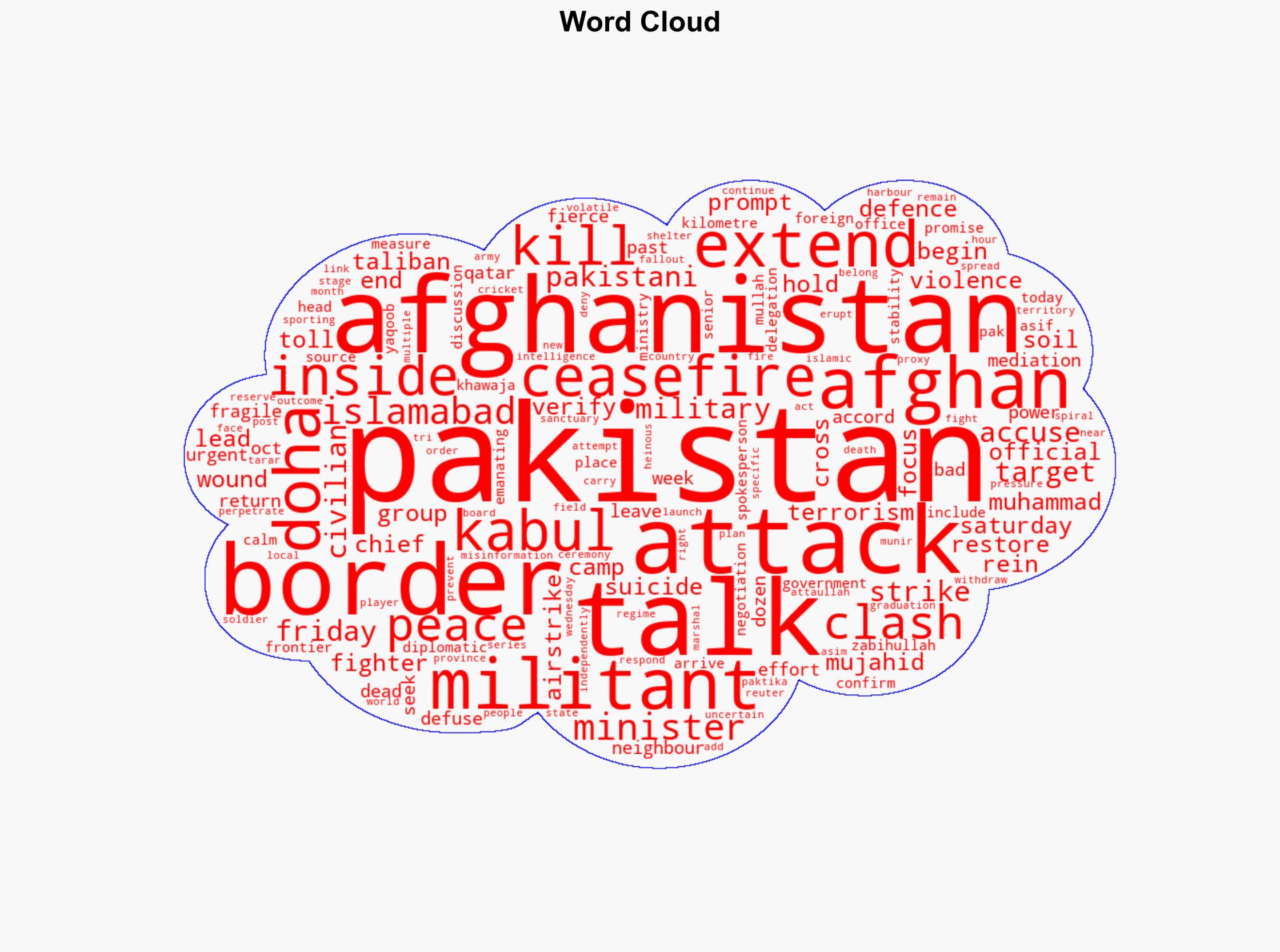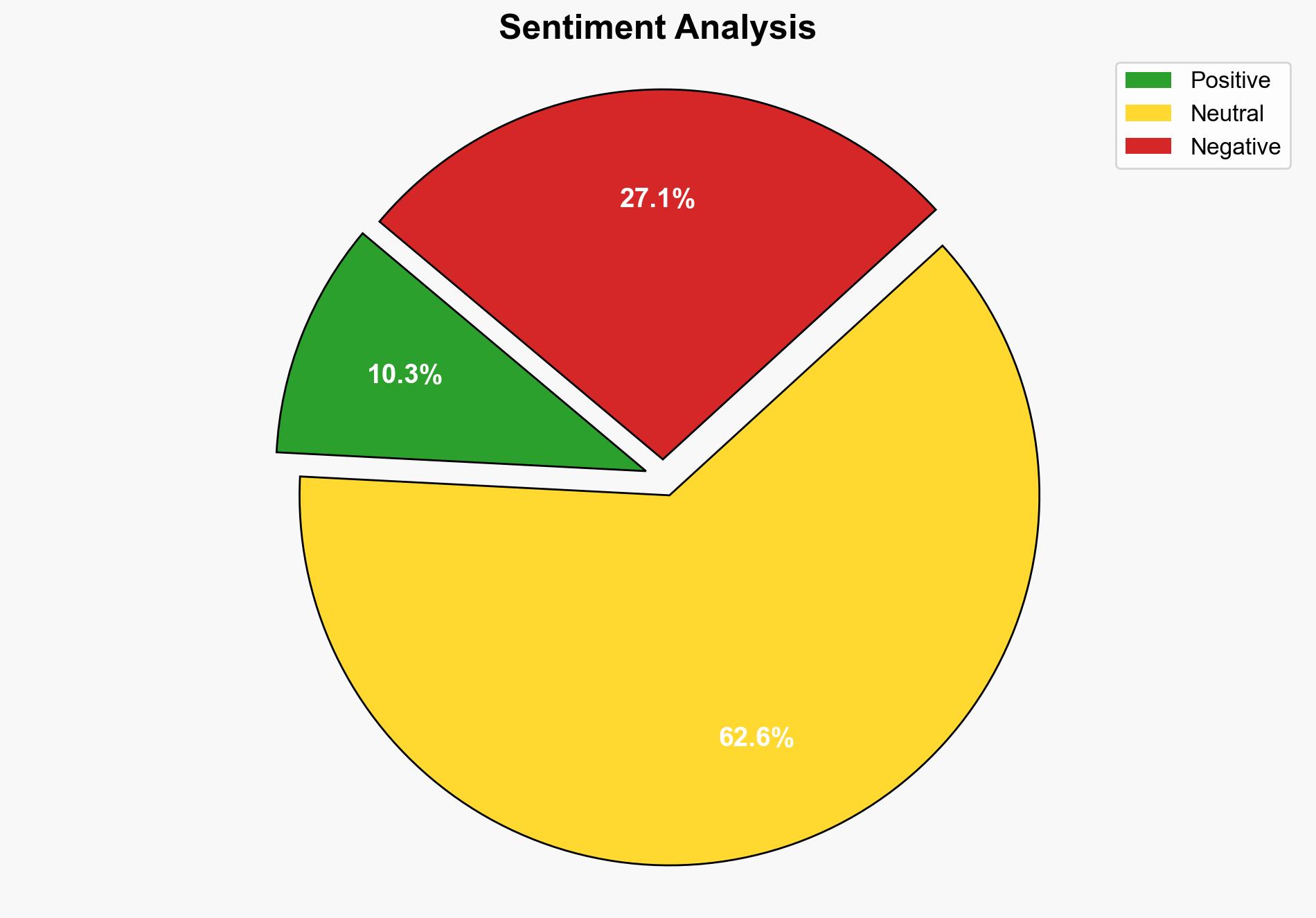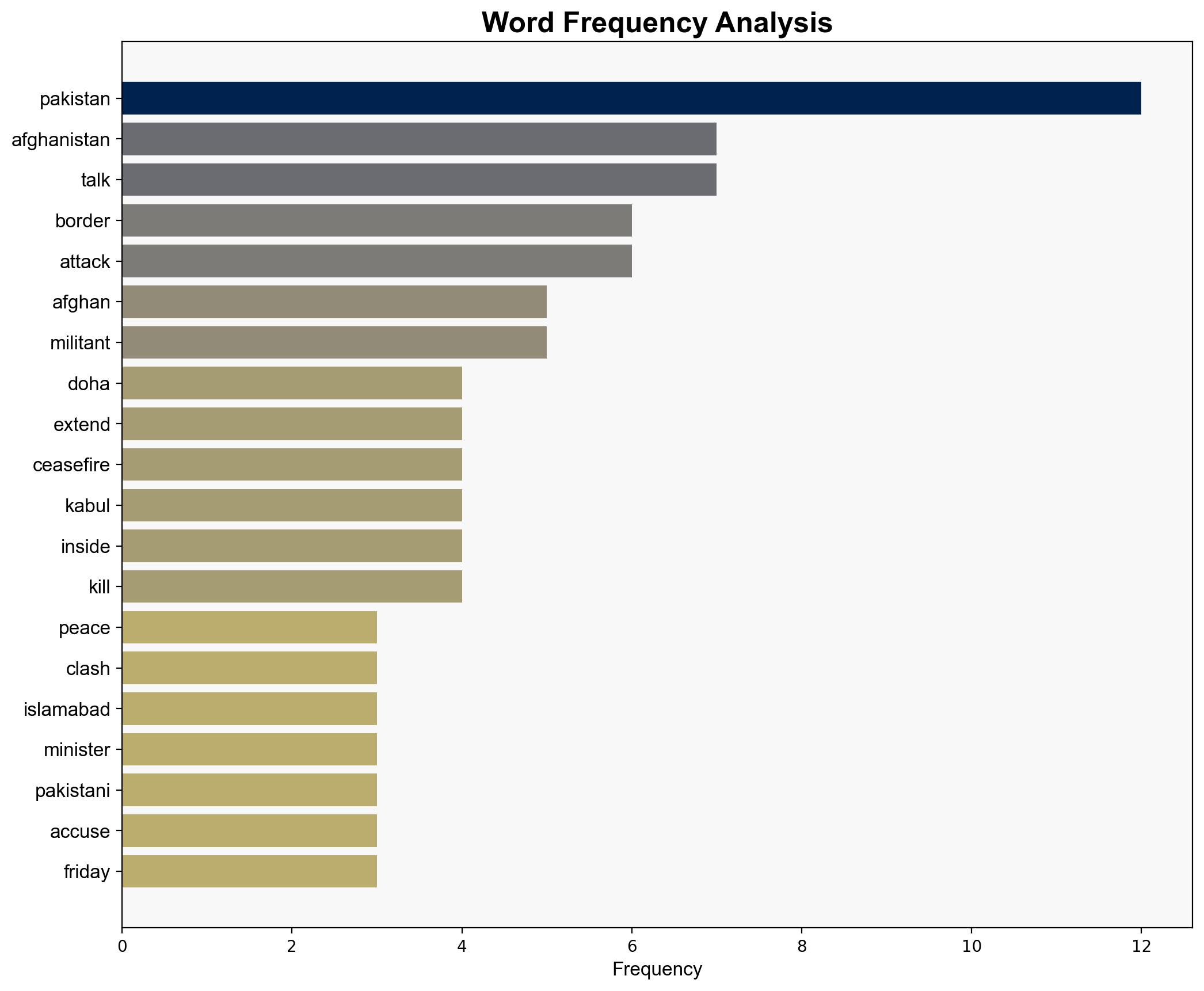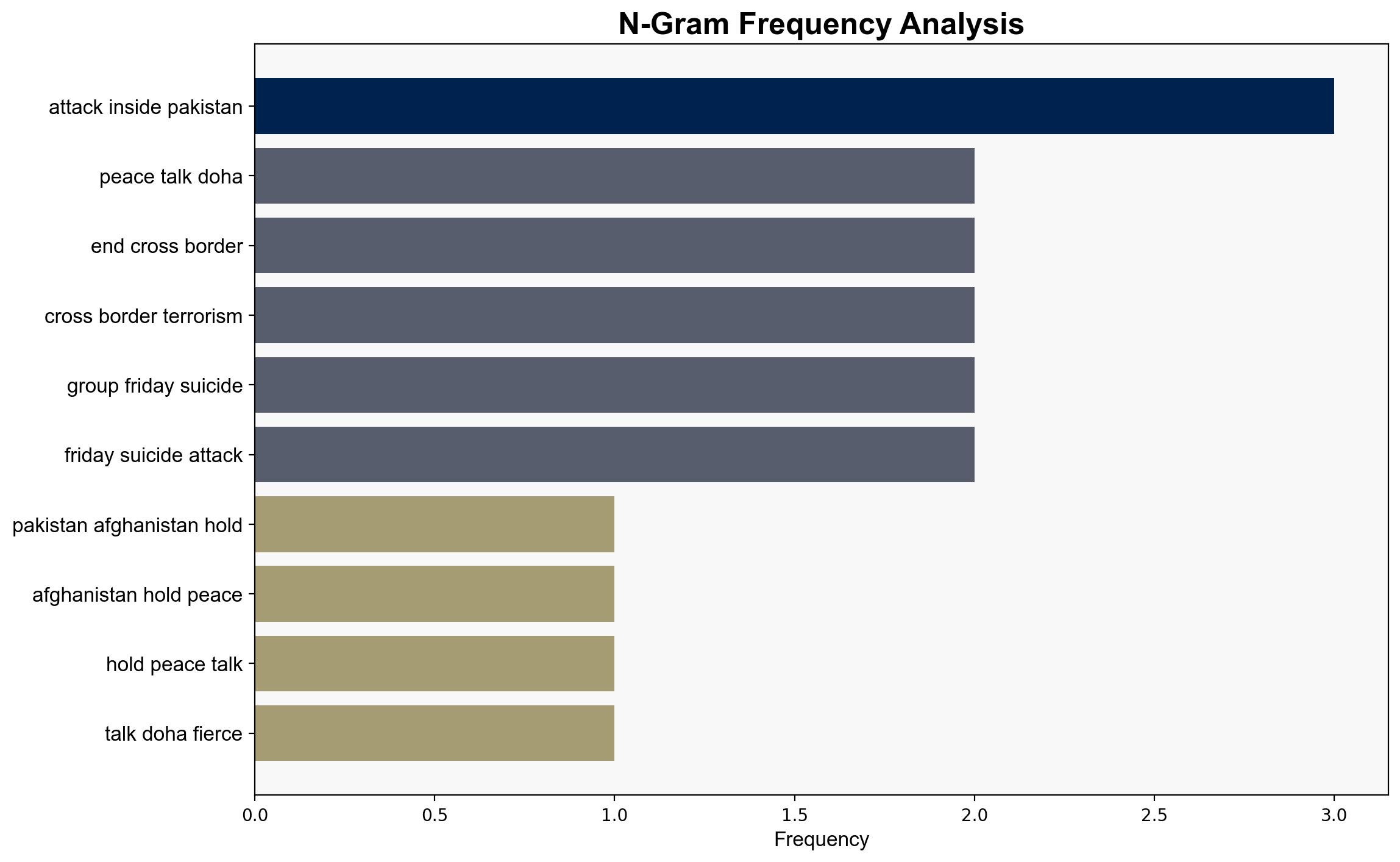Pakistan and Afghanistan hold peace talks in Doha after fierce clashes – CNA
Published on: 2025-10-18
Intelligence Report: Pakistan and Afghanistan hold peace talks in Doha after fierce clashes – CNA
1. BLUF (Bottom Line Up Front)
The peace talks between Pakistan and Afghanistan in Doha aim to extend a fragile ceasefire and address cross-border terrorism. The most supported hypothesis is that both nations are genuinely seeking to stabilize the region due to international pressure and internal security concerns. Confidence level: Moderate. Recommended action: Support diplomatic efforts and monitor compliance with ceasefire agreements.
2. Competing Hypotheses
1. **Genuine Peace Efforts Hypothesis**: Both Pakistan and Afghanistan are committed to reducing border tensions and are engaging in talks to prevent further violence, driven by mutual interest in regional stability and international pressure.
2. **Strategic Posturing Hypothesis**: The talks are primarily a strategic move by both countries to appease international observers and gain leverage, with limited genuine intent to resolve underlying issues.
Using ACH 2.0, the Genuine Peace Efforts Hypothesis is better supported due to the involvement of high-level officials and the immediate extension of the ceasefire, indicating a willingness to negotiate.
3. Key Assumptions and Red Flags
– **Assumptions**: Both countries have control over their respective militant groups; international pressure is a significant motivator for peace talks.
– **Red Flags**: Accusations of misinformation and airstrikes during the ceasefire suggest potential deception or lack of control over military actions.
– **Blind Spots**: The actual influence of external actors like the Taliban and regional powers on the peace process is unclear.
4. Implications and Strategic Risks
– **Escalation Risks**: Failure of talks could lead to renewed violence, impacting regional stability and international relations.
– **Geopolitical Dimensions**: Successful talks could shift power dynamics, affecting alliances and regional influence.
– **Economic Impact**: Prolonged instability may deter investment and economic development in the region.
5. Recommendations and Outlook
- Support continued diplomatic engagement and confidence-building measures between Pakistan and Afghanistan.
- Monitor compliance with ceasefire agreements and verify claims of cross-border activities.
- Scenario Projections:
- Best Case: Successful negotiations lead to long-term stability and improved bilateral relations.
- Worst Case: Talks collapse, resulting in intensified conflict and regional destabilization.
- Most Likely: Incremental progress with periodic setbacks, requiring sustained international mediation.
6. Key Individuals and Entities
– Zabihullah Mujahid
– Mullah Muhammad Yaqoob
– Khawaja Muhammad Asif
– Asim Munir
– Attaullah Tarar
7. Thematic Tags
national security threats, cybersecurity, counter-terrorism, regional focus





